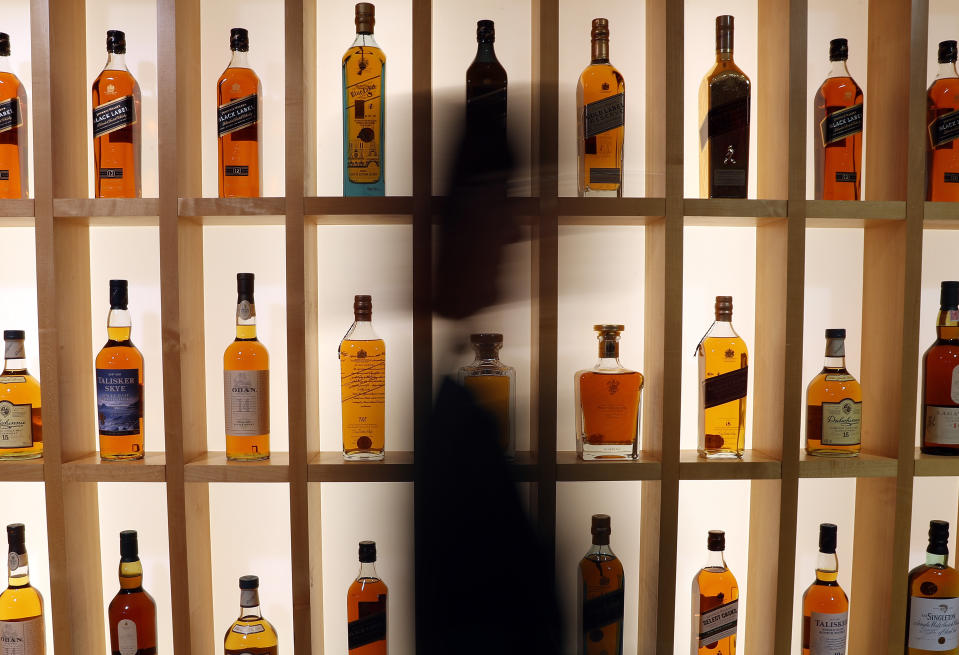America is going on a ‘pre-Brexit whisky binge’

America has been going on a kind of “pre-Brexit whisky binge,” with October setting an all-time import record for the spirit, according to a Panjiva Research note on Thursday.
One of the obvious explanations for the 51.3% surge in whisky shipments from the rest of the world to the US is that importers are hoping to preempt post-Brexit shortages, with scotch whisky manufacturers warning that a no-deal scenario could lead to increased costs and supply chain complications.
While Irish whiskey has been growing more quickly than Scotch, UK exports of whisky surged 17.3% in October compared to the same month in 2017, with most of the export growth to the US being led by drinks giant Diageo (DGE.L), which owns the Johnnie Walker and Buchanan’s brands. The company saw a threefold surge in exports in the three months to the end of November.
On Wednesday, the Scotch Whisky Association issued a warning to MPs that a no-deal Brexit scenario would cause “considerable difficulties” for the £4.5bn ($5.6bn) industry, pointing to the potential for increased costs and complexity in production, distribution and exporting processes.
Calling Theresa May’s Brexit deal a “compromise,” it nonetheless said it was “a positive step towards much needed business certainty.”
Brexit has also stoked the fears of the whisky industry in other ways. Reports from earlier in the year suggested that American trade groups, as part of a future trade deal with the US, could demand the scrapping of EU rules that require the spirit to be aged for at least three years if it’s to be marketed as whisky in the UK.
If the UK decides not to replace the EU product labelling rules once it leaves the bloc, US manufacturers would be able to flood the market with their much younger, cheaper products.

 Yahoo Finance
Yahoo Finance 
